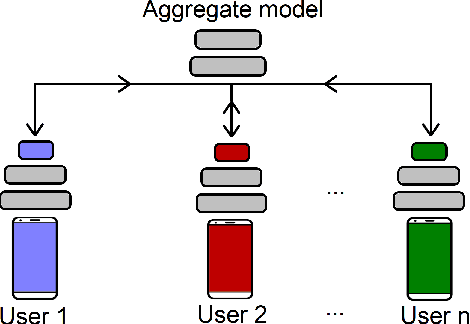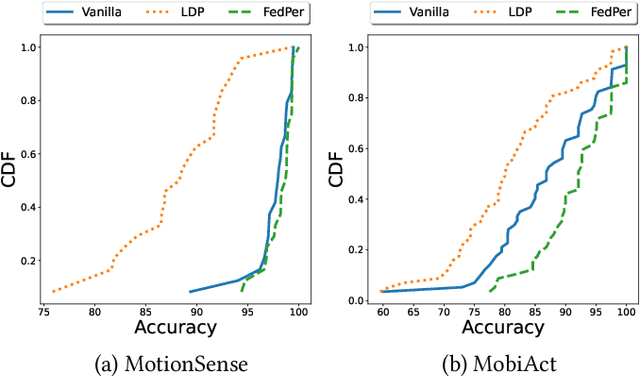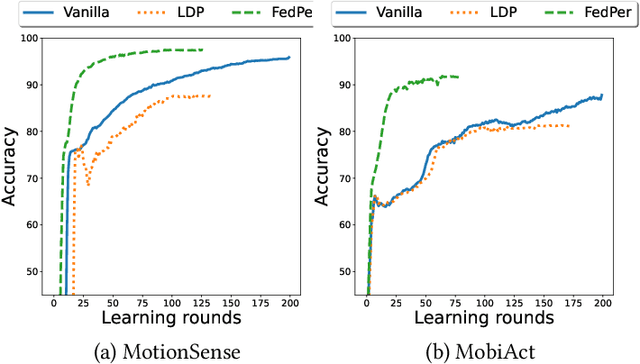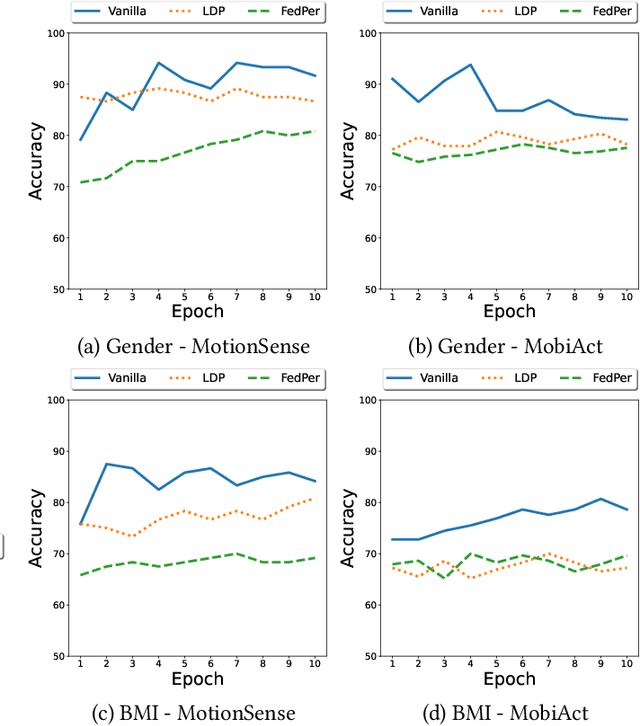Théo Jourdan
CREATIS, PRIVATICS
Privacy Assessment of Federated Learning using Private Personalized Layers
Jun 15, 2021



Abstract:Federated Learning (FL) is a collaborative scheme to train a learning model across multiple participants without sharing data. While FL is a clear step forward towards enforcing users' privacy, different inference attacks have been developed. In this paper, we quantify the utility and privacy trade-off of a FL scheme using private personalized layers. While this scheme has been proposed as local adaptation to improve the accuracy of the model through local personalization, it has also the advantage to minimize the information about the model exchanged with the server. However, the privacy of such a scheme has never been quantified. Our evaluations using motion sensor dataset show that personalized layers speed up the convergence of the model and slightly improve the accuracy for all users compared to a standard FL scheme while better preventing both attribute and membership inferences compared to a FL scheme using local differential privacy.
DYSAN: Dynamically sanitizing motion sensor data against sensitive inferences through adversarial networks
Mar 23, 2020



Abstract:With the widespread adoption of the quantified self movement, an increasing number of users rely on mobile applications to monitor their physical activity through their smartphones. Granting to applications a direct access to sensor data expose users to privacy risks. Indeed, usually these motion sensor data are transmitted to analytics applications hosted on the cloud leveraging machine learning models to provide feedback on their health to users. However, nothing prevents the service provider to infer private and sensitive information about a user such as health or demographic attributes.In this paper, we present DySan, a privacy-preserving framework to sanitize motion sensor data against unwanted sensitive inferences (i.e., improving privacy) while limiting the loss of accuracy on the physical activity monitoring (i.e., maintaining data utility). To ensure a good trade-off between utility and privacy, DySan leverages on the framework of Generative Adversarial Network (GAN) to sanitize the sensor data. More precisely, by learning in a competitive manner several networks, DySan is able to build models that sanitize motion data against inferences on a specified sensitive attribute (e.g., gender) while maintaining a high accuracy on activity recognition. In addition, DySan dynamically selects the sanitizing model which maximize the privacy according to the incoming data. Experiments conducted on real datasets demonstrate that DySan can drasticallylimit the gender inference to 47% while only reducing the accuracy of activity recognition by 3%.
 Add to Chrome
Add to Chrome Add to Firefox
Add to Firefox Add to Edge
Add to Edge